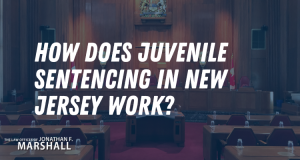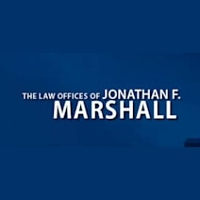 In New Jersey, the juvenile justice system operates differently from the adult criminal justice system. Minors who are found guilty and sentenced in the juvenile system are put on a track meant to rehabilitate rather than punish them. The goals of this system stem from the belief that young offenders are more capable of change and by addressing the root causes of their behavior it can help prevent future offenses. Juvenile sentencing in New Jersey focuses on providing tailored interventions that aim to prevent recidivism. The types of sentences juveniles can receive in New Jersey differ from those in the adult system, as do the factors that influence those decisions.
In New Jersey, the juvenile justice system operates differently from the adult criminal justice system. Minors who are found guilty and sentenced in the juvenile system are put on a track meant to rehabilitate rather than punish them. The goals of this system stem from the belief that young offenders are more capable of change and by addressing the root causes of their behavior it can help prevent future offenses. Juvenile sentencing in New Jersey focuses on providing tailored interventions that aim to prevent recidivism. The types of sentences juveniles can receive in New Jersey differ from those in the adult system, as do the factors that influence those decisions.
Juvenile Court Jurisdiction
The juvenile justice system in New Jersey typically handles offenders under the age of 18. However, it is possible, in certain severe cases, for juveniles to be tried as adults. The decision to try a minor as an adult depends on the nature of the offense, the age of the offender, and their prior criminal history. A juvenile murder charge, for example, has a much higher chance of being tried in an adult court than an assault charge or mischief charge. For those who are tried and convicted within the juvenile system, juvenile sentencing in New Jersey aims to balance accountability with opportunities to put the past behind them and move forward with a clean future.
Types of Juvenile Sentences in New Jersey
Types of juvenile sentences in New Jersey include various options tailored to address the specific circumstances of each case:
- Diversion Programs – Diversion programs are often the first option for minor, non-violent offenses committed by juveniles. These programs allow the child or teen to avoid formal prosecution by completing specific requirements, such as community service, counseling, or educational workshops. Successful completion typically results in the charges being dismissed.
- Probation – Probation is a common sentence for juveniles to receive in New Jersey. Under probation, the minor is allowed to remain in their community under the supervision of a probation officer. Conditions may include regular check-ins, attending school, curfews, and participation in counseling or treatment programs. Probation can typically last anywhere from 18 months to up to 3 years.
- Juvenile Detention – For more serious offenses, juveniles may be sentenced to a period of detention in a juvenile facility. These facilities are designed to provide a structured environment with educational and rehabilitative services. Detention is usually a last resort when other options are deemed insufficient to address the behavior or ensure public safety. There are currently 3 juvenile detention centers operating in New Jersey, two in Bordentown, and one in Monroe Township.
- Residential Programs – Juveniles with significant behavioral or emotional challenges may be placed in residential treatment programs. These programs offer intensive therapy, education, and life skills training in a controlled environment. There are currently 10 residential community homes in New Jersey that juveniles could be placed in.
- Community Service – Sometimes community service is part of a larger diversion program, and sometimes it is given as a stand-alone sentence. This serves as a way for them to give back to society while learning the value of responsibility and accountability.
- Restitution – In cases involving property damage or theft, the court may order the juvenile or their guardian to pay restitution to the victim. This can include financial compensation or the return of stolen property.
Factors Influencing Sentencing
There are several factors which can influence the types of juvenile sentences in New Jersey:
- Nature of the Offense: Violent or repeat offenses are more likely to result in stricter sentences. For example, the sentence for juvenile murderers will be much harsher than for those who have committed assault, theft, or a lesser crime.
- Age of the Offender: The younger a child is when the crime is committed, typically, the more leniency is given, and there is a stronger focus on rehabilitation.
- Prior Criminal Record: A history of previous offenses can lead to harsher penalties, especially for older teens.
- Family and Community Environment: The court may consider the juvenile’s home life and support system when determining an appropriate sentence.
- Mental Health and Substance Abuse: If these issues are present, the court may mandate treatment as part of the sentence.
The Role of Rehabilitation
Rehabilitation is the main goal of juvenile sentencing in New Jersey. Programs and services aim to address the underlying causes of the delinquent behavior, such as poor decision-making skills, lack of education, or unstable home environments. By providing resources and support, the state seeks to help minors reintegrate into society as productive members.
Speak With a Criminal Lawyer If Your Child or Teen Has Been Charged
Juvenile sentencing in New Jersey emphasizes accountability, rehabilitation, and the opportunity for a second chance. The system recognizes that young offenders have the potential for change and growth, making it distinct from the punitive nature of adult sentencing. If your child has been charged with a crime, it is important to speak with a criminal lawyer as soon as possible as they will do all they can to protect the rights and future of your child.



